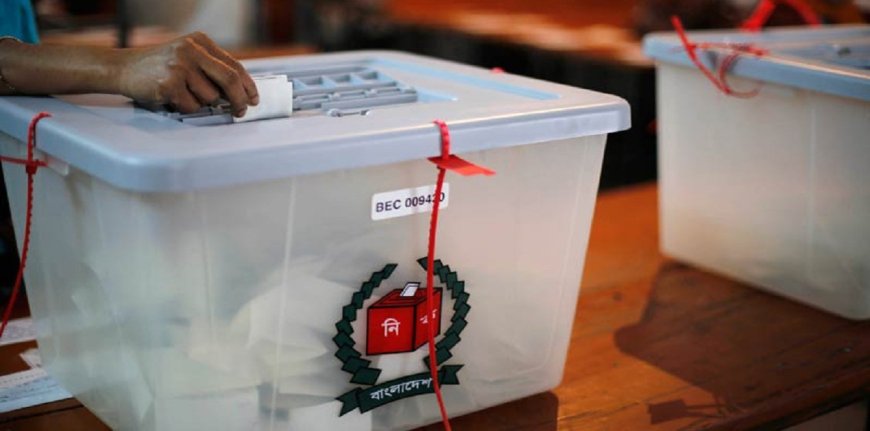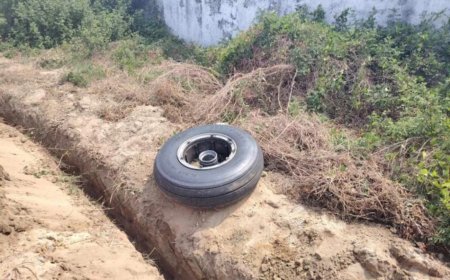Why Is There Renewed Demand to Hold Local Government Elections First?
Why Is There Renewed Demand to Hold Local Government Elections First?

At the beginning of the year, political circles were abuzz with debate over whether national or local government elections should take precedence. However, amid strong opposition from the BNP, the issue gradually faded.
Recently, momentum has picked up again, with several political parties renewing their demand for local government elections to be held first. This has sparked fresh curiosity about whether strategic calculations are behind the move. Last week, Bangladesh Jamaat-e-Islami, Islami Andolan Bangladesh, and Gono Odhikar Parishad publicly backed the call for prioritizing local elections.
While the BNP has consistently insisted on holding national elections first, it has yet to issue an official response to this renewed demand. The party remains focused on pushing for national elections by December, coordinating with allies to pressure the interim government. On 23 April, Islami Andolan Bangladesh and Gono Odhikar Parishad held a meeting where both agreed that local elections should precede national polls. Their leaders, Mufti Syed Muhammad Rezaul Karim and Nurul Haque, cited the public's suffering due to a lack of local governance and the need for time to enact national reforms.
Following this, on 25 April, Jamaat-e-Islami's Amir, Shafiqur Rahman, also urged the Election Commission to conduct local elections first, arguing it would serve as a test of the commission’s integrity and readiness. Meanwhile, although not formally declared, leaders from the newly-formed National Citizen Party (NCP) have echoed similar demands through media interactions.
The debate over election sequencing had first gained traction in January-February. On 6 January, the Local Government Reform Commission, led by Professor Tofail Ahmed, emphasized strong public support for local elections outside Dhaka. Two days later, Chief Adviser Professor Muhammad Yunus indicated that preparations were underway for both national and local elections. Groups like the National Citizen Committee (the NCP’s predecessor) and the Anti-Discrimination Student Movement also endorsed local elections being prioritized. By mid-February, Local Government Adviser Asif Mahmud Shojib Bhuiyan personally expressed support for the idea, although no official decision was made.
Despite these discussions, BNP leaders maintained their opposition, demanding national elections first, and after March, the issue largely faded from public debate. Senior NCP leaders also shifted focus to advocating for a constituent assembly election instead of emphasizing local elections.
Opposition from the BNP, along with silence from the government, caused the discussion to die down after February—until Jamaat, Islami Andolan, and Gono Odhikar Parishad recently reignited it. Notably, just before the issue resurfaced, the Local Government Reform Commission submitted its final report to Chief Adviser Yunus on 20 April, suggesting that while both elections are essential, local elections should not be delayed.
The Reason Behind the Renewed Discussion
While demand for local government elections dominated discussions earlier this year, interest waned during Ramadan and Eid. Its sudden resurgence has intrigued political observers. BNP sources argue that local elections before national polls could trigger unrest, delay the national elections, and cause internal divisions within the party at the grassroots, potentially weakening their national campaign.
Thus, the BNP remains adamant about holding national elections first. Senior Joint Secretary General Ruhul Kabir Rizvi emphasized that while other parties are free to express opinions, the BNP firmly believes national elections must take precedence, noting that even during the caretaker government era, local elections were not prioritized.
Meanwhile, parties backing local elections first argue that such polls would strengthen their grassroots presence, challenging the BNP's dominance. They suggest the BNP’s opposition stems from fear of losing ground at local levels.
Political analysts are now questioning whether the revival of this demand reflects strategic maneuvering to corner the BNP or signals new political realignments ahead of the national elections. However, leaders like Maulana Gazi Ataur Rahman of Islami Andolan clarify that their party’s position is not newly adopted; they have consistently demanded local elections under an interim setup to prevent MPs from influencing local bodies. While they acknowledge collaboration with like-minded groups, they deny any formal alliance in pushing this demand.
What's Your Reaction?





















































































